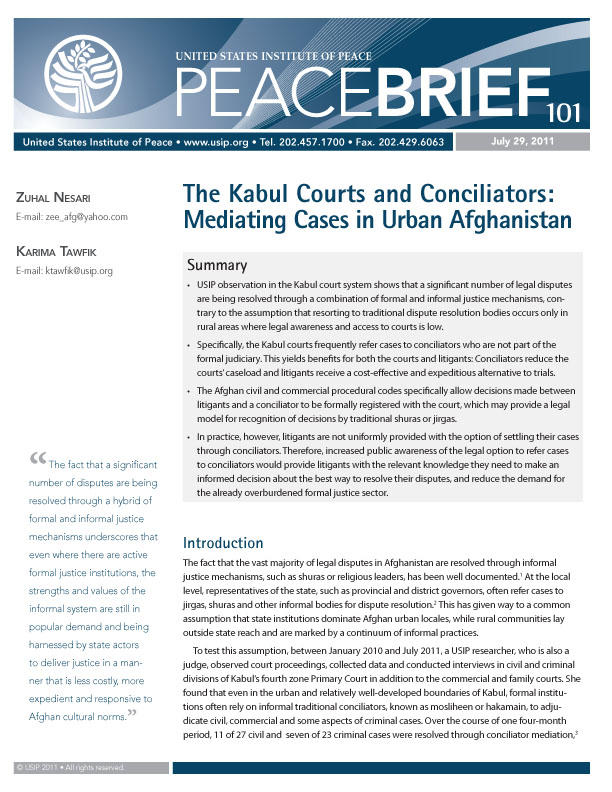Between January 2010 and July 2011, a USIP researcher officer, Zuhal Nesari, observed court proceedings, collected data and conducted interviews in civil and criminal divisions of Kabul’s fourth zone Primary Court in addition to commercial and family courts.

Summary
- USIP observation in the Kabul court system shows that a significant number of legal disputes are being resolved through a combination of formal and informal justice mechanisms, contrary to the assumption that resorting to traditional dispute resolution bodies occurs only in rural areas where legal awareness and access to courts is low.
- Specifically, the Kabul courts frequently refer cases to conciliators who are not part of the formal judiciary. This yields benefits for both the courts and litigants: Conciliators reduce the courts’ caseload and litigants receive a cost-effective and expeditious alternative to trials.
- The Afghan civil and commercial procedural codes specifically allow decisions made between litigants and a conciliator to be formally registered with the court, which may provide a legal model for recognition of decisions by traditional shuras or jirgas.
- In practice, however, litigants are not uniformly provided with the option of settling their cases through conciliators. Therefore, increased public awareness of the legal option to refer cases to conciliators would provide litigants with the relevant knowledge they need to make an informed decision about the best way to resolve their disputes, and reduce the demand for the already overburdened formal justice sector.
About This Brief
Between January 2010 and July 2011, a USIP researcher officer, Zuhal Nesari, observed court proceedings, collected data and conducted interviews in civil and criminal divisions of Kabul’s fourth zone Primary Court in addition to commercial and family courts. She is a Kabul native, who graduated from the Law and Political Science Faculty of Kabul University and is currently a judge in Kabul’s appeals court. She has also worked extensively on USIP’s informal justice projects in Afghanistan. Karima Tawfik works in USIP’s Rule of Law Center of Innovation in Washington, DC.